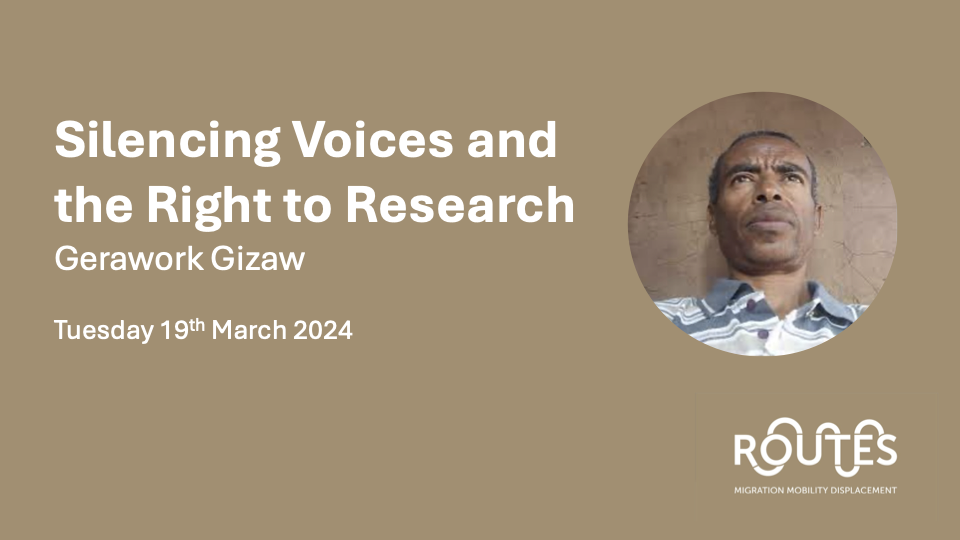On 19 March, Routes had the pleasure of hosting Gerawork Teferra (Gera) to deliver the 2024 Routes Visiting Scholar Guest Lecture. Gera was selected as the 2024 Routes Visiting Scholar from a pool of highly competitive applications. His six-week visiting scholarship culminated with this lecture titled ‘Silencing Stories and the Right to Research’.
In the lecture, Gera covered significant ground. He framed the lecture around the inevitability of silencing – that in research, while some stories are told, others are silenced in the process. He emphasised the power of the researcher in this selection process, and the consequent imbalance that typically arises between the researcher and the researched.
Gera then turned to the question of how to practically respond through one’s research practice. He advanced beyond the traditional typology of research ‘on’, ‘for’, ‘with’ and ‘by’,[1] by adding ‘along’. This idea of ‘along’ advocates for research that is conducted along with the community. In this approach, external researchers accompany community-based researchers. In doing so, resources are provided to the community and a culture of doing research is developed. Crucially, doing this effectively requires patience and humility on the part of the external researcher.
Gera then provided fascinating insights into his experiences of research into storytelling in Kakuma Camp, Kenya. Particularly insightful were Gera’s observations on the varying ways in which participant groups practiced storytelling – some funny and light-hearted; others adhering to a more formal structure. The images that Gera shared with us certainly demonstrated this variety in action.
The range and number of questions, comments and reflections from audience members was testament to the thought-provoking nature of the lecture. The subsequent discussion covered the themes and insights that explicitly featured in the lecture, but also addressed the topics of finance and research funding, the humanitarian response architecture, and the potential benefits of traditional storytelling methods.
To read more about Gera’s research in this area, do take a look at his contributions to the 2023 edited volume, The Right to Research: Historical Narratives by Refugee and Global South Researchers, published by McGill-Queen’s University Press (https://doi.org/10.2307/j.ctv37mk241).
[1] For further reading on this, see Ann Macaulay, ‘Editorial. Participatory Research: What is the History? Has the Purpose Changed?’ (2017) 34(3) Family Practice 256-258; and Kurt Lewin, ‘Action Research and Minority Problems’ in Gertrud Weiss Lewin (ed.), Resolving Social Conflicts: Selected Papers on Group Dynamics (Harper & Row 1967), 201-216.

